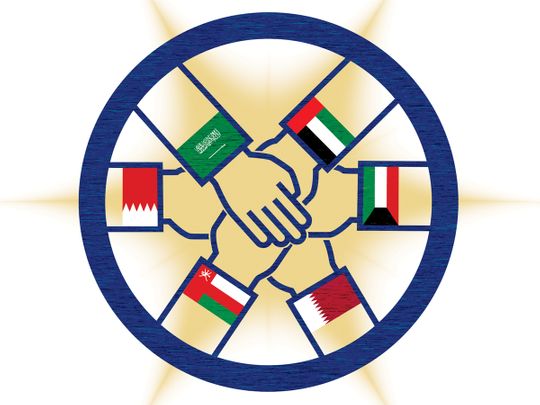
Have the GCC countries’ collective clout taken on a new significance? A question that can only be answered by following recent developments that confirm the growing economical, geopolitical and military role of GCC countries.
These are accompanied by another shift, represented in the independence of the Gulf’s decision-making, especially after the Saudi-UAE alliance, which marked a turning point in the development of policies that took on broader interests of the GCC countries as a whole.
Various countries are seeking to deepen their commercial, financial and economic relations with the Gulf nations, especially after the developments of the past two years, which demonstrated the advantages others can gain via such ties. The opposite is also true if other countries’ ties with the GCC are strained, as they will suffer significant losses affecting their growth chances.
The best example of this scenario is the GCC’s relations with Turkey and Iran. After they set for themselves ideological agendas that were far from reality, most GCC countries took a balanced - but economically tough – stance, whereby they reduced their trade and economic relations to the minimum. They also froze the implementation of vital projects, expressing in a highly civilized spirit their non-acceptance of interference in their internal affairs.
Deprived opportunities
The two countries subsequently lost out on large markets and vital projects that would have provided thousands of jobs. This situation led to protests from business chambers and contributed to increased inflation, accumulation of unsold goods and drop in their prices.
Since the demands of the GCC states were clear and just, Turkey, for example, has reconsidered its ideological approach, a move that was welcomed by the Gulf nations, which deal with matters rationally - and firmly. Accordingly, Turkey’s ties with the GCC have resumed, yielding positives, particularly on the Turkish side.
According to Turkish newspaper ‘Cumhuriyet’, Turkish exports to Saudi Arabia have increased by 801 per cent after the end of the ban on Turkish products. Turkish exports to the UAE increased 17 per cent at a time when the UAE is reconsidering projects worth $12 billion to implement in Turkey. Also, the expected visit of the Turkish President to Saudi Arabia is expected to facilitate a currency-swap deal worth $15 billion, similar to the swap between Qatar and the Central Bank of Turkey.
Some welcome flexibility?
On the Tehran front, it seems that Iran have realised the trade and economic importance of the GCC countries, leading to some improvement in trade. However, there is still much that can be done if reason and pragmatism prevail about common interests and away from the black ideologies that have reached a deadlock.
The Gulf’s clout is not limited to the region, but exceeds those geographic boundaries. This was manifest in the practical decision taken by the Gulf nations to maintain the cohesion of OPEC+ group, a decision based on their national interests despite the great pressure applied on them to increase production. Doing so, they managed to maintain the solidity of the grouping and prevent its collapse, which could have led to heavy losses due to the possible collapse in oil prices.
These indicate that those who cooperate with the GCC countries will greatly benefit from the fortunes amassed by these countries and whose flexible policies have earned them the world’s respect. Those who try to cross the red lines with the Gulf nations lack a knowledge of the nature of the burning Arabian desert and its unforgiving sands, which can swallow those who try to cross the desert without knowing its topography.












